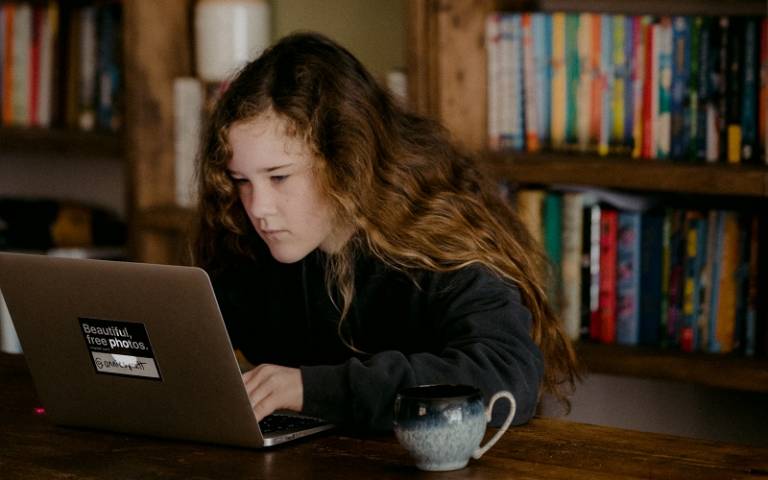Opportunities to learn maths in lockdown were limited, research shows
21 September 2020
Lockdown restricted the opportunity to learn mathematics for most pupils, with low attainers and other disadvantaged pupils facing greater restrictions, new research by UCL Institute of Education (IOE) and Queen’s University Belfast reveals.

On 20 March 2020, schools in England closed for almost all pupils. In an attempt to mitigate the loss of around 15 weeks of normal schooling, secondary schools provided remote teaching for pupils.
Researchers from the Student Grouping Study have published an interim report looking at remote teaching provision and pupil participation in maths learning in Year 7, the first year of secondary schooling in England, during lockdown.
From analysing a survey administered in May to Heads of Mathematics in secondary schools and follow-up in-depth interviews conducted in June, the team found that lockdown provided very few chances for any pupils to engage in mathematical talk or receive formative feedback. A major disadvantage was the lack of opportunity for pupils to interact with teachers and each other during their learning. Few schools facilitated live interactions between pupils, with many citing safeguarding concerns rather than technical issues.
The findings show that pupils with low prior attainment and other disadvantaged pupils participated less and, when they did, they were less engaged. The team identified three reasons for disadvantaged pupils’ low levels of participation and engagement:
- limited access to technology
- low levels of parental support and involvement with schoolwork
- specific ‘new’ personal or family-related challenges faced by vulnerable pupils during the lockdown.
With the new school year underway, some changes to usual grouping approaches are being considered by Heads of Mathematics due to concerns about the widening attainment gap.
The report’s authors say that post-lockdown resources need to be carefully targeted at disadvantaged pupils irrespective of their prior attainment.
It is recommended that catch up responses, such as the National Tutoring Programme and ‘recovery curricula’ in schools, should not simply focus on catch up or remedial teaching but should also include more challenging mathematical work. Also, maths departments should adopt strategies that enable more pupils to experience positive outcomes of classroom-based and remote teaching.
The researchers state schools should be encouraged to establish distance learning and homework practices during the Autumn term 2020 in order to prepare for any further school closures. These approaches should, as far as possible, be integrated into the schools’ ‘normal’ classroom practice and curriculum offer.
The authors also highlight the importance on collaboration, stating that there would be value in sharing effective practices and ways in which some schools have overcome obstacles and difficulties.
The research was supported by funding from the Education Endowment Foundation.
Links
- Read the report: Remote teaching during lockdown: An investigation of Year 7 mathematics
- Student Grouping Study
- Department of Curriculum, Pedagogy and Assessment
- COVID-19 related research at UCL Institute of Education
Image
Teenager doing schoolwork at home. Image: Annie Spratt via Unsplash.
 Close
Close

